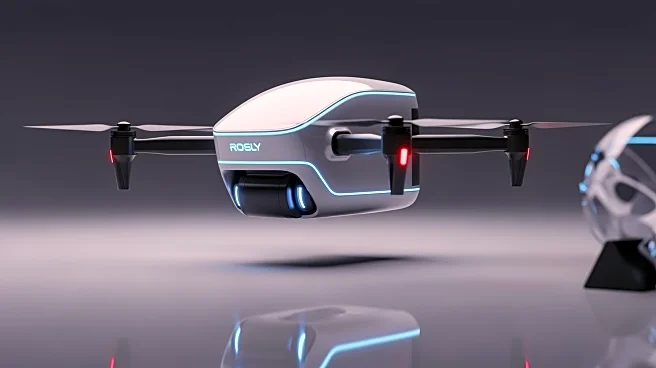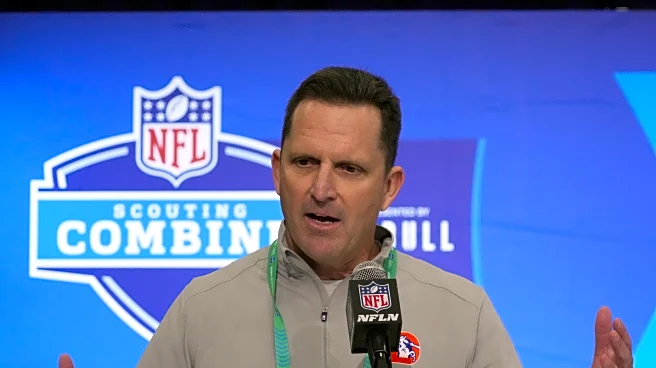What's Happening?
DoorDash has announced plans to significantly increase its investment in autonomous delivery technology by several hundred million dollars in 2026. This initiative includes the development of Dot, a stroller-sized robot capable of navigating bike lanes
and sidewalks for deliveries, and the integration of self-driving Waymo cars. The announcement was made during a recent earnings call by CEO Tony Xu, who emphasized the necessity of upfront investments to advance these technologies. Despite the strategic move towards automation, DoorDash's stock experienced a historic 17% drop following the announcement, indicating investor concerns about the financial implications of such a substantial investment.
Why It's Important?
The decision by DoorDash to invest heavily in autonomous delivery technology reflects a broader industry trend towards automation and self-driving solutions. This move is significant as it positions DoorDash to potentially lead in the future of delivery services, which could revolutionize logistics and reduce labor costs. However, the immediate negative reaction from investors highlights the risks associated with large-scale investments in emerging technologies, particularly in terms of financial stability and return on investment. The stock drop suggests skepticism about the short-term profitability of these initiatives, which could impact DoorDash's market position and investor confidence.
What's Next?
DoorDash's commitment to autonomous technology is expected to unfold over the coming years, with substantial investments planned for 2026. The company will likely focus on refining its technology and expanding its autonomous delivery capabilities. Stakeholders, including investors and industry competitors, will be closely monitoring DoorDash's progress and the effectiveness of its investments. The broader industry, including companies like Uber and Lyft, is also investing in similar technologies, indicating a competitive landscape where successful implementation could lead to significant market advantages.
Beyond the Headlines
The push towards autonomous delivery technology raises ethical and regulatory questions, particularly concerning safety standards and the impact on employment in the delivery sector. As these technologies become more prevalent, there will be increased scrutiny from regulatory bodies to ensure public safety and address potential job displacement. Additionally, the integration of AI and robotics in everyday services could lead to long-term shifts in consumer behavior and urban planning, as cities adapt to accommodate autonomous vehicles and delivery systems.
















